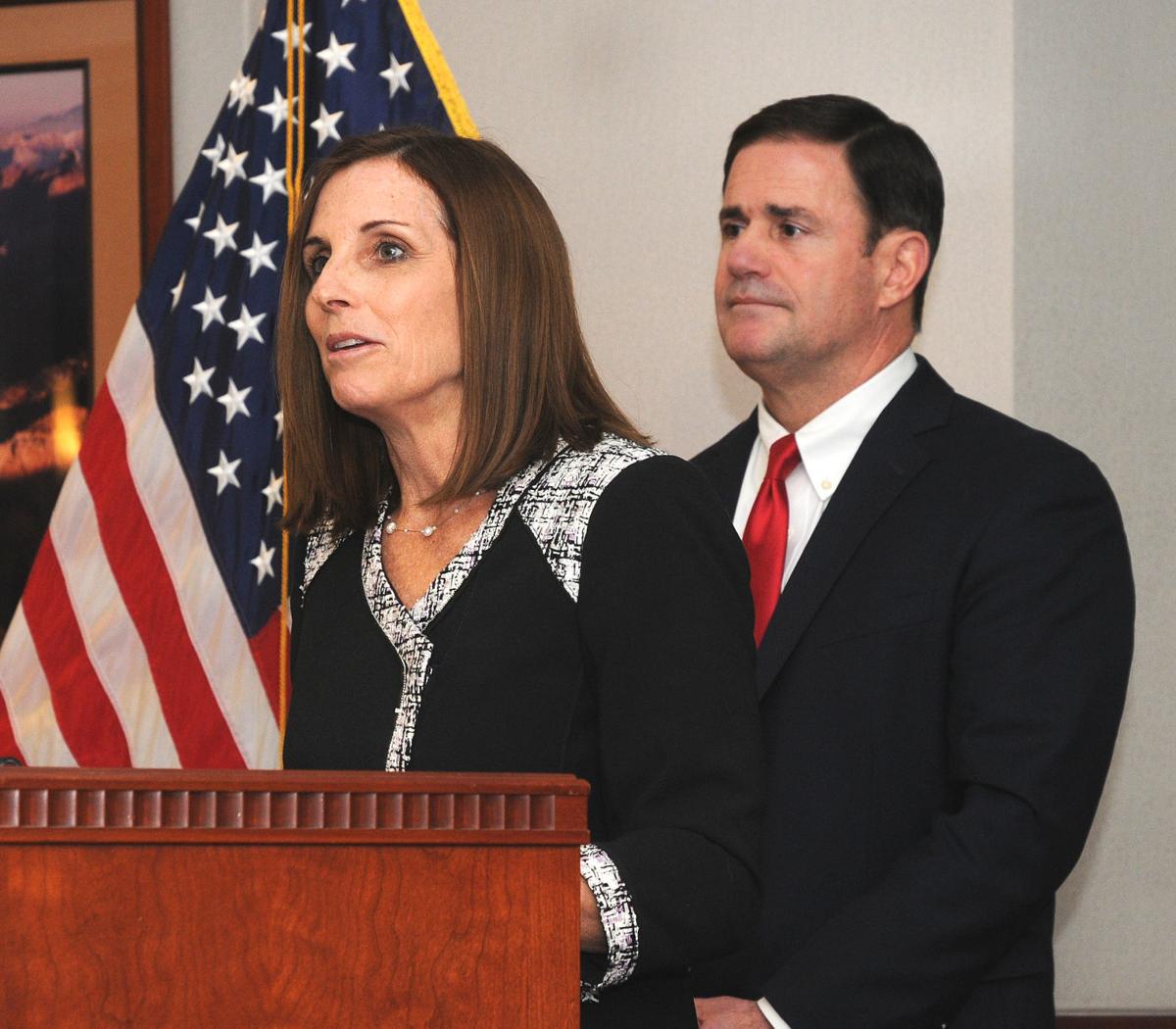PHOENIX — Martha McSally can keep the U.S. Senate seat she was given by Gov. Doug Ducey through at least the end of the year, the 9th Circuit Court of Appeals ruled Thursday.
In an extensive ruling, the three-judge panel concluded that Arizona law gives the governor broad discretion in deciding when to call a special election to fill an unexpired term. In this case, they said, Ducey was within his power to call the election for later this year — four years into the term of the late Sen. John McCain — rather than earlier.
Judge Milan Smith Jr., writing for the court, acknowledged there will be a 27-month gap between the August 2018 death of John McCain and the chance for voters to decide who they want in office. Ducey initially appointed former U.S. Sen. Jon Kyl, replacing him with McSally in January 2019.
At the heart of the fight is the 17th Amendment to the U.S. Constitution that took the power to name U.S. senators away from state lawmakers.
It also says when there are vacancies the governor “shall issue writs of election to fill such vacancies.” Ducey did that, setting the primary for Aug. 25 of this year and the general election for Nov. 3 to determine who fills out the rest of the term, which ends at the end of 2022.
Thursday’s ruling, unless overturned, sets the stage for McSally to continue her bid to try to keep the seat for another two years against a challenge by Democrat Mark Kelly.
The lawsuit filed in November 2018 by five registered voters — two Democrats, one independent, one Libertarian and one Republican — argued that the U.S. Constitution requires the appointment to be temporary “until the people fill the vacancies by election as the Legislature may direct.”
Attorney Michael Persoon argued there should be a special election before the end of 2020, an election that could result in voters choosing someone other than McSally — and other than a Republican — to serve through the end of McCain’s term in 2022.
The problem with that, Smith said, is that there is legal precedent to the contrary. He cited a 1969 federal appellate court ruling that found it was not unreasonable for the state of New York to wait until November 1970 to have an election to fill the vacancy created by the June 1968 assassination of Sen. Robert Kennedy, a gap of 29 months.
And in this case, Smith said, the lapse between McCain’s death and the 2020 general election is less than that.
That, the judge said, makes the timing of Ducey’s special election call “a permissible exercise of the state’s discretion.”
Still, he acknowledged, that still leaves the question of what constitutes “temporary” in the context of the governor’s power to temporarily fill the vacancy.
“We would have difficulty reading it to approach anything nearing that full six-year term,” Smith said.
Separately the judges threw out the challenge to the part of state law that required Ducey to appoint a Republican, like McCain.




